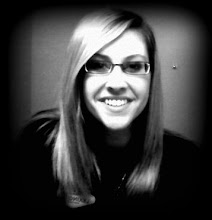cy. One cannot function without the other. A democracy is, "of the people, by the people, and for the people." Those people need to be properly informed of the situations going on around them. Not only that, but they need to be given a voice. After all, it is their community and if it is, "of, by and for" them, they need to be able to have a say about it. That is where journalism and the first amendment come in. True journalism does not tell the people what to think, but instead gives them something to think about. And the first amendment, (being freedom of speech, religion, assembly, etc.) allows the people to put those thoughts into words. A government needs order and journalism and the first amendment are part of what help a democracy run smoothly. That is why a democracy needs journalism and the first amendment.
To further this argument I want to look a tad deeper into what journalism, the first amendment and a democracy are.
Q & A Session...
Journalism

Q: Now Tell me again, what is your definition of journalism?
A: A true journalist strives to produce true journalism which is an art. It is meant to keep their community informed on the situations going on locally and in the world. Even more so than that, everything it does should have the greater good of the community in mind. And it does all of this in an unbiased fashion.
Q: How many different models of journalism exist today?
A: There are four different types of journalism. Three of those four exist today. Those three being traditional elite journalism, advocacy journalism, and public and civil journalism.
Democracy

Q: What is your definition of democracy?
A: Democracy is allowing the people to have an opinion, but in an orderly fashion. If everyone got what they wanted right when they wanted it, the world would be even more of a mess than it is now. Democracy gives people the inspiration to think for themselves and puts the tools to make those thoughts happen in, (what are supposed to be), the hands of people who know how to properly use them.
Q: What is the difference between "election politics" and "public politics"?
A: Election politics are more focused on the candidate trying to convince the public that their opposing candidate is wrong. In other words, it is more broad and keys in on the candidate's thoughts being right rather than the issue itself. Public politics come into play more after the candidate has already won. They can now take into consideration the view points of the public and focus on more issues rather than just the hot topics.
Q: What was the Lippmann v. Dewey debate?
A: This debate took place in the 1920's and consisted of the contrasting beliefs of Walter Lippmann and John Dewey. These men had two very different opinions on the role a journalist should play. Lippmann believed that journalists should be mediators between the government and the public. Dewey thought Lippmann's idea to be idiotic, saying that the general public could not comprehend elements of that nature. He proposed that journalists should filter what was presented to the public and what was not. Dewey's argument became the more popular one and soon after "community journalism" was developed.
First Amendment

Q: What does the First Amendment say exactly?
A: "Congress shall make no law respecting an establishment of religion of prohibiting the free exercise thereof; or abridging the freedom of speech, or of the press; or the right of the people peaceably to assemble, and to petition the Government for a redress of grievances."
Q: Are any of those protections important in your life?
A: All of these protections are important in my life. Faith plays a huge role in who I am. If I could not freely practice my beliefs, life would be such a burden. Freedom of speech and the right to assemble go hand in hand with freedom of religion. And the rest of the protections affect me because they affect people I love and care about. I believe everyone should be entitled to their own opinion and that their opinion should be given a voice.
Diversity
Q: Why is diversity in religion, speech, press, assembly and petition so important to a democracy?
A: The reason diversity of all of the above are vital to a democracy should be self-explanatory. A democracy as stated before is "of, by and for the people." And no one person is exactly alike.
Q: How do journalists and the First Amendment ensure that people hear diverse voices in the marketplace of ideas?
A: Journalists will take the ideas of the people and convey them to the public. The First Amendment protects the journalists and gives them the right to do so.
Q: Can you speak from personal experience about how diversity, protected by the First Amendment or championed by journalists, made a difference in your like?
A: Diversity protected by the First Amendment makes a difference in my life every day. It allows me to hear the view points of my fellow classmates, co-workers, family, etc and why they have those view points. Even though, by human nature, I will be pulled towards those who think as I do, I can also observe and respect other people's points of view.


More journalists need to remember this. Nice read.
ReplyDeleteKeep up the good work! Being yourself is what makes a true journalist I believe. :)
ReplyDelete